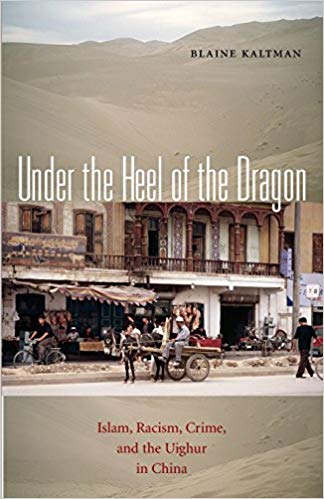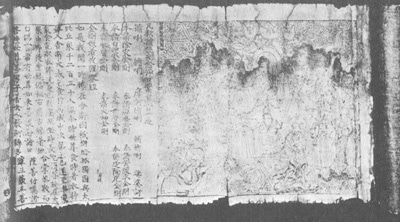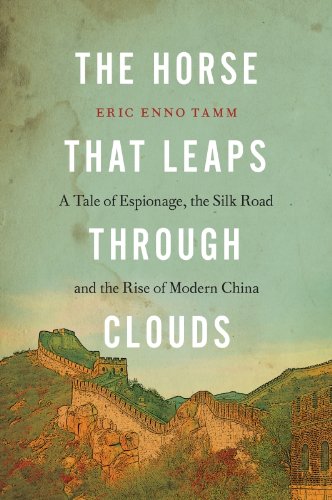Under the Heel of the Dragon | Book Review

Under the Heel of the Dragon
by Blaine Kaltman
Review by Josh Summers
More than four years before the deadly riots in Urumqi, an American named Blaine Kaltman working on his PhD thesis, traveled all over China interviewing Uyghur and Han alike to find out the answer to one simple question:
Are you guys ever going to get along?
In 2007, still two years before the mass protests, his thesis was revised and published by Ohio University Press as Under the Heel of the Dragon, an in-depth look at the mutual prejudice that continues to grip the Xinjiang region of China.
Although this book is a scholarly work, not intended for the casual reader, it provides an opportunity for those interested to get a behind-the-scenes look at the attitudes and underlying problems that led up to the 2009 riots.
The conclusions didn’t come as a shock to me and won’t to anybody else familiar with the situation in Xinjiang, but many of the opinions expressed in the interviews are unexpected and noteworthy.
The Prejudice is Mutual in China
The 217 interviews were conducted in Beijing, Shanghai, Shenzhen, and Urumqi without the knowledge or supervision of the government.
While the responses of most of the Han participants tended to be the same, Uyghur answers varied by location and social/economic status.
It is for this reason that it is easy to label Han as being prejudice because, as this survey shows and my experience corroborates, most of them responded as such:
“Wherever they [the Uighur] are, they cause trouble. They steal, they sell drugs – mostly they steal. I think that even if the Uighur had good jobs, they would still steal.”
But what about the Uyghur? For many, this overwhelmingly negative view of their people only serves to fuel their own prejudice, creating a destructive cycle documented by Kaltman’s interviews:
“China, the Han, they think they own all the land…they come to Xinjiang and disrespect the local people…Han come here and take our jobs.”
Another segment of the Uyghur population takes this prejudice as a challenge. With such a competitive job market it is undeniably difficult for a Uyghur who doesn’t speak perfect Mandarin to get a good job.
Any attempt by the government to make Mandarin mandatory in school is usually met with international criticism, but some Uyghur in Xinjiang feel this might be necessary:
“Uighur must be smarter than Han…they must work harder, too, because we have to learn the Han language and Han ways if we want to survive in Han society.”
Of course sometimes those Uyghur who do learn the Han ways and become an active part of society are looked down upon by other Uyghur and derisively nicknamed “Chinese Uyghur”.
“They [Chinese Uyghur] sell out their own culture to get ahead. Maybe it’s the only way, but they’re not real Uighur, and that’s worse than not having money.”
Throughout the interviews I gained a better perspective on just how complicated these issues really are. Blanket statements about Uyghur feelings are impossible to make because there is such a wide spectrum of thought. One thing shines out in Kaltman’s research above all else, though.
Uyghur and Han share a mutual prejudice for each other.
Criticisms of Under the Heel of the Dragon
Although I find Blaine Kaltman’s Under the Heel of the Dragon to be an interesting and accurate snapshot of the issues that plague Uyghur/Han relationships, his research is held back by two critical problems:
- Language
- Cultural understanding
Each one of Kaltman’s interviews is conducted in Mandarin, not the Uyghur language. While a majority of Uyghur can speak at least some Mandarin, this still leaves a large segment of the minority population out of the picture.
I would argue that on certain issues, those Uyghur who can’t speak Mandarin would differ slightly in attitude toward the Han due to lack of constant interaction with them.
Also apparent in Kaltman’s writing is a vague understanding of Uyghur culture as a whole. He seems surprised by the fact that many Uyghur aren’t strict Muslims (in my experience most Uyghur are Muslims by birth, not by conviction) and continually refers to Xinjiang’s famous lamb dishes as “goat meat”.
These drawbacks don’t seem to create any noticeable bias or slant in the writing, but I am left wondering how a Uyghur in, say, Hotan (a southern city with a Uyghur majority) might have responded to the same questions.
Next Steps for Xinjiang Prejudice
I found myself at the end of Under the Heel of the Dragon asking myself, “So, is there any possible way to end this prejudice?” Kaltman uses only two pages at the end of the book to explain his “Steps…to Improve Uighur-Han Relations”, and most of it revolves around the key issue of language.
The truth is that there is no cut-and-dry answer to these problems, but this book has done an exceptional job foreshadowing the riots of July 2009 by examining the deep-rooted problems that Xinjiang’s ethnic groups face. It’s the same problems that many people have when forming opinions about Xinjiang, one reason this book would be a beneficial read for them.
All the security forces in the world can’t fix the ignorance of those who have an opinion without an understanding. This ignorance is exemplified by my favorite quote in the entire book:
“Xinjiang people don’t bathe,” interjected the young Han woman [a student in Shanghai who hadn’t ever visited Xinjiang]…
“They don’t?” I asked.
“No, because Xinjiang has no water.”
Final Thoughts | Book Review
In the years since the book and this review were originally published, a lot has happened in Xinjiang. China has imprisoned hundreds of thousands, if not millions of Uyghur in “re-education camps” better known as “concentration camps”.
Obviously, this hasn’t helped the hatred and prejudice that continues to spread between the Han Chinese and Uyghur.
For a better understanding of what’s happening, I recommend you visit Xinjiang for yourself. You can grab the FarWestChina Xinjiang travel guide to help you plan a trip to meet Uyghur and Han people in Xinjiang and formulate your own opinions.
And if Xinjiang and the Silk Road interests you, you may also want to check out other great Xinjiang and Silk Road books. These include books such as:
- Foreign Devils on the Silk Road (Review): a gripping retelling of the Great Game story
- English by Wang Gang (Review): a translation of a popular Chinese novel written by a man who grew up in Xinjiang
- A Tree That Bleeds (Review): another Xinjiang book written from the perspective of a foreigner
- Eurasian Crossroads: A History of Xinjiang (Review): by far the BEST book on Xinjiang history







